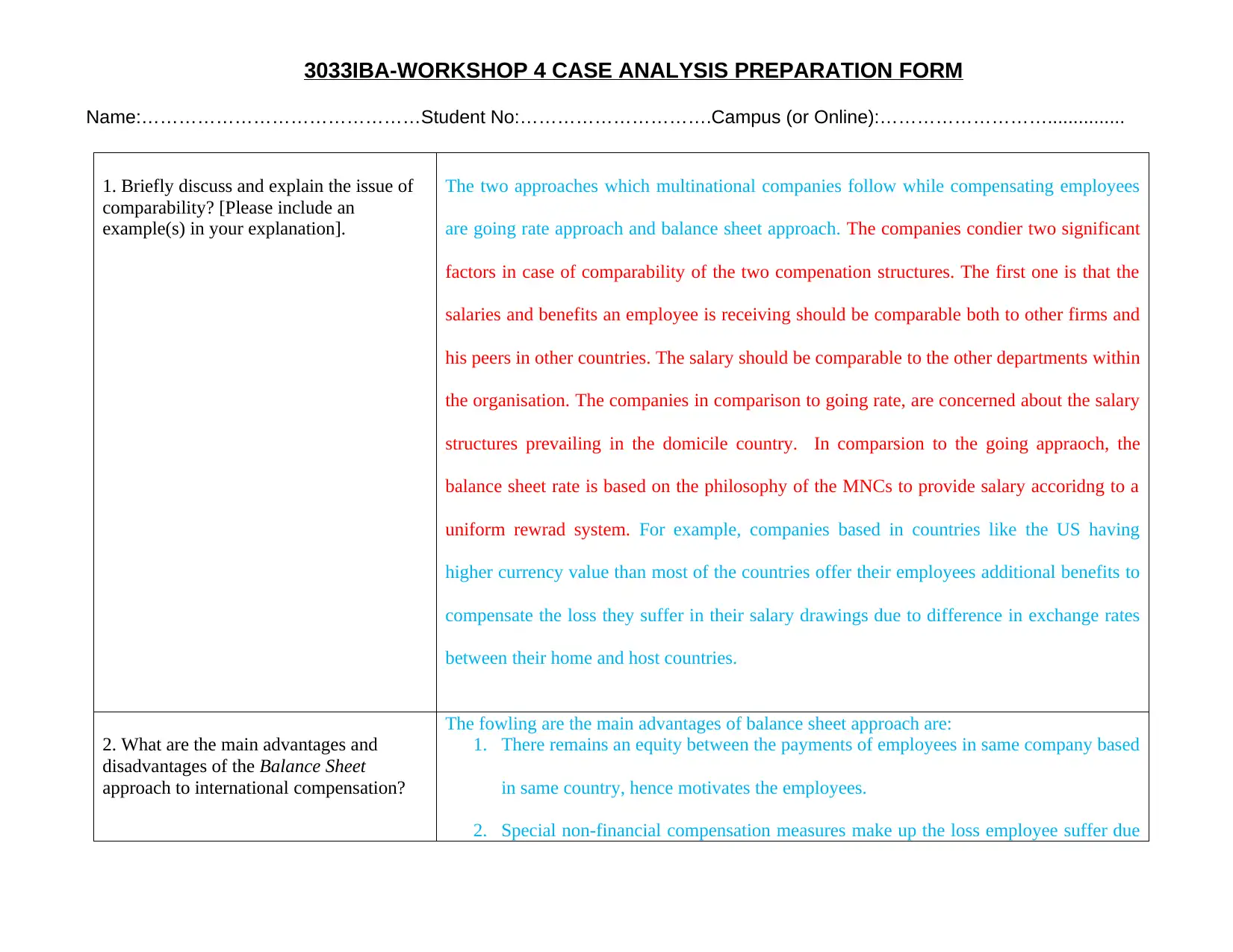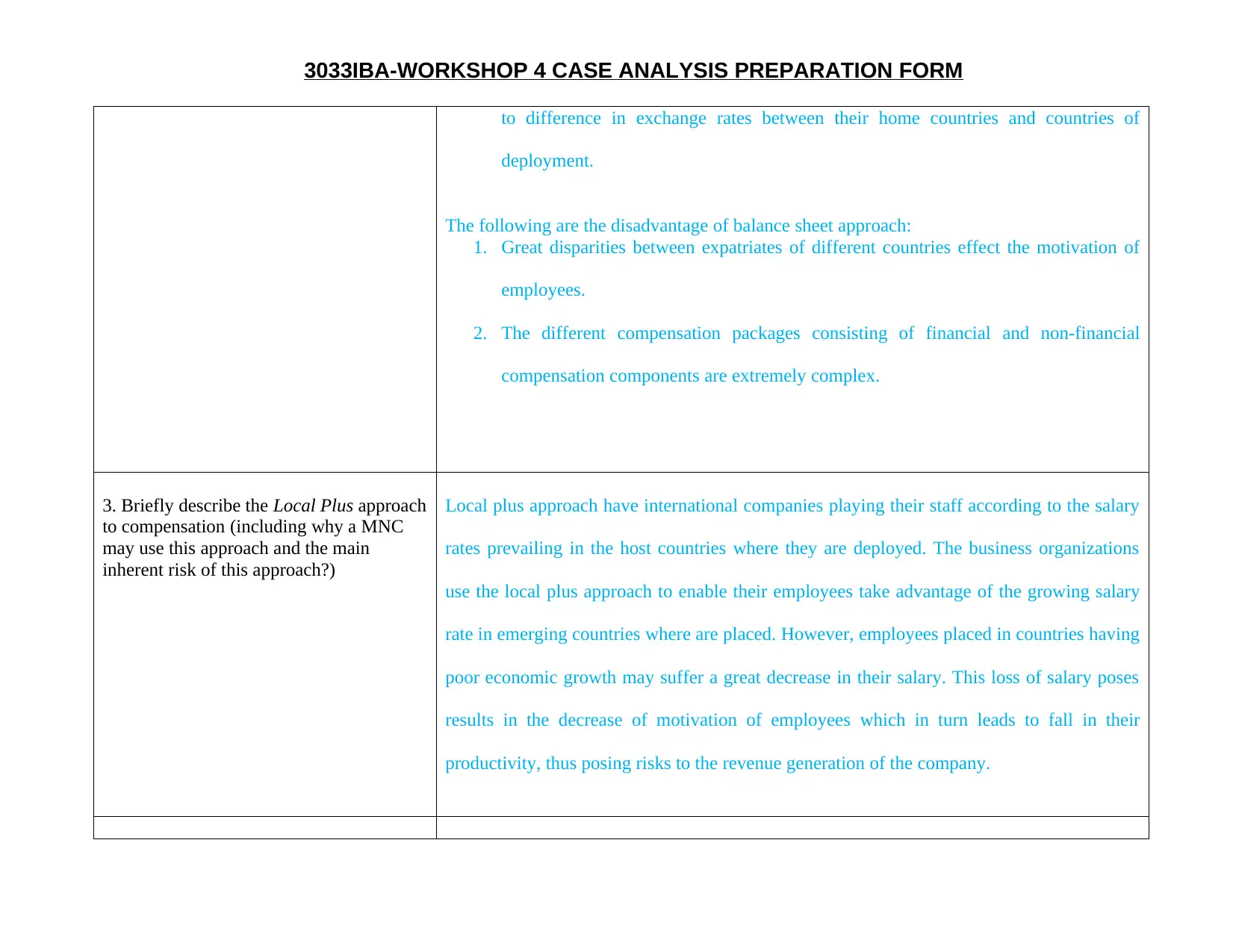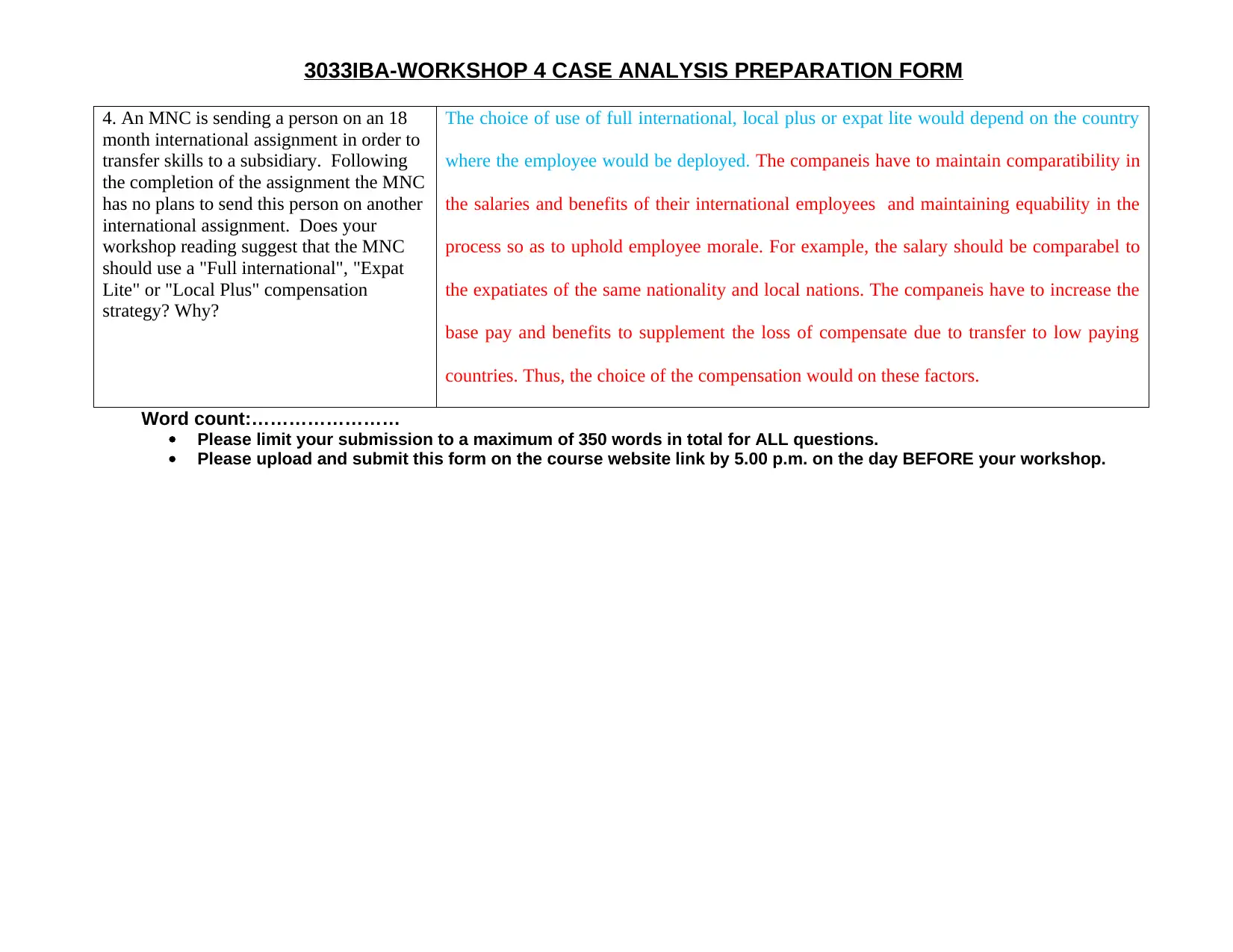Compensation Strategies: Workshop 4 Case Analysis Assignment
VerifiedAdded on 2021/06/17
|4
|687
|78
Homework Assignment
AI Summary
This assignment analyzes compensation strategies used by multinational corporations (MNCs), focusing on the balance sheet and local plus approaches, along with a discussion of comparability in compensation. The solution explores the advantages and disadvantages of the balance sheet approach, which aims to provide equitable compensation to employees regardless of their location. It also examines the local plus approach, where employees are paid based on local market rates. The assignment further considers the implications of these strategies for employees on international assignments, particularly in the context of skill transfer and repatriation. Finally, it addresses the choice of compensation strategy (full international, Expat Lite, or local plus) based on the specific circumstances of an international assignment and the need to maintain employee morale and competitiveness.
1 out of 4






![[object Object]](/_next/static/media/star-bottom.7253800d.svg)